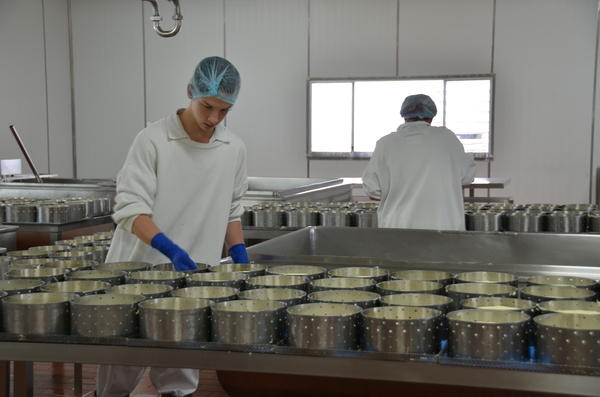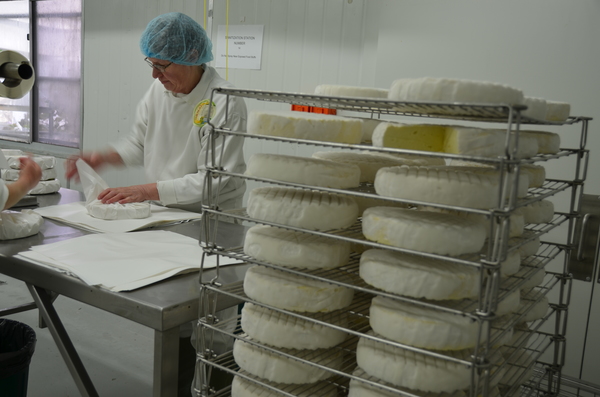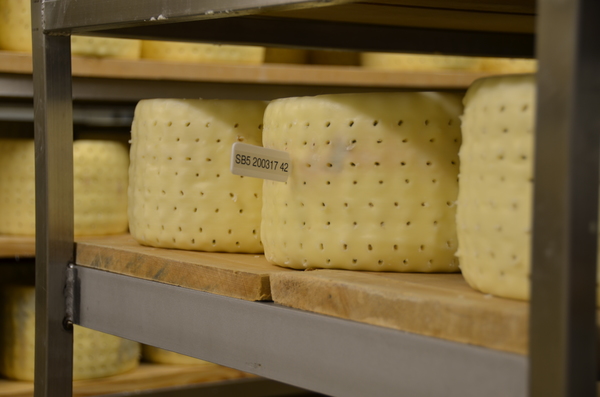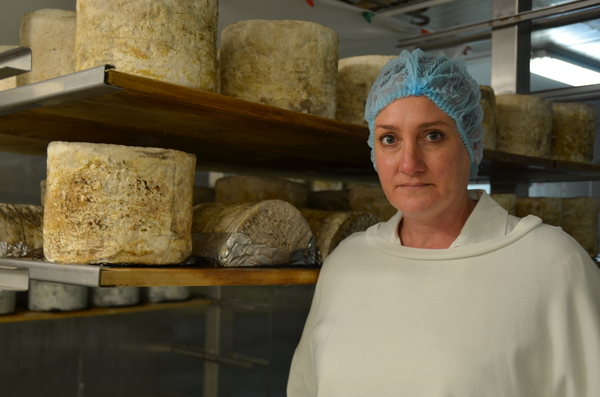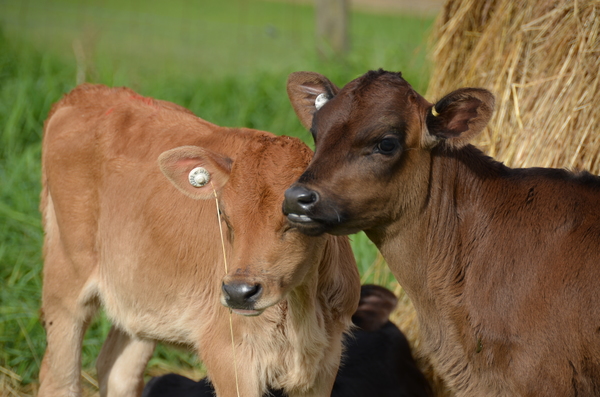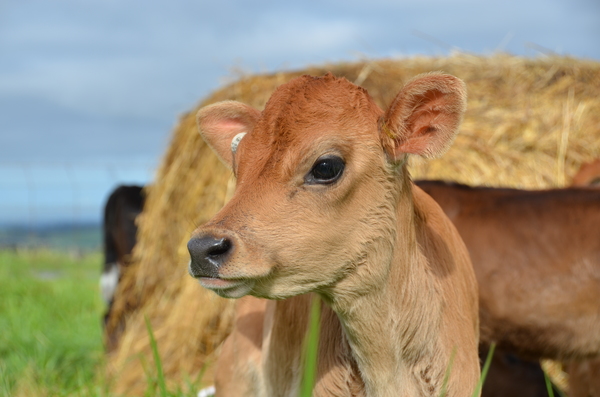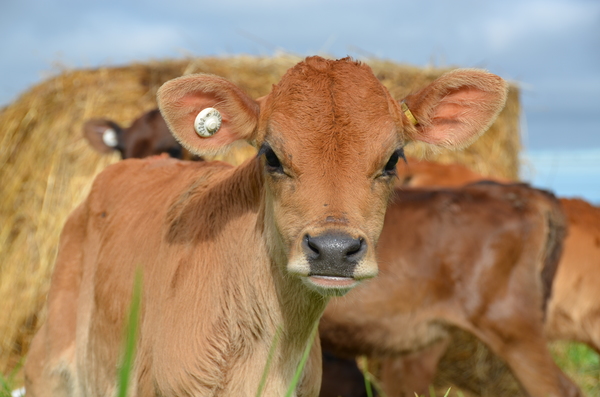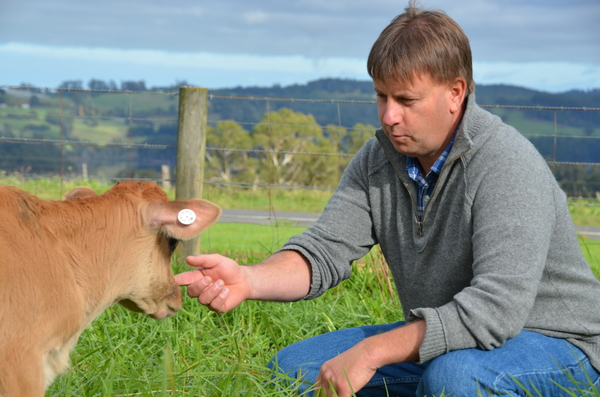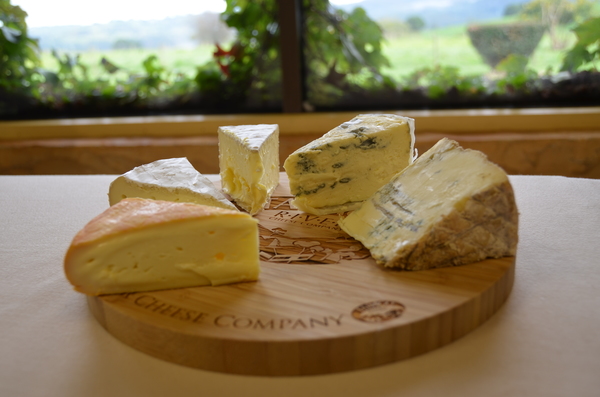
By Casey Neill
A thin layer of foamy, chlorine-heavy water covers almost the entire floor surface inside the cheese production area.
There are hand sanitiser stations at every door and temperature and humidity control systems.
Tarago River Cheese Company is filled with mould – but it’s the right kind.
Its Gippsland Blue started the company’s journey to cheese plates across the country more than 35 years ago.
Today, executive director and co-owner David Johnson is in partnership with Laurie Jensen.
“It was my parents and Laurie and his father who got together in the early ’80s and decided they were going to value add,” he said.
“Mum and dad have farmed here; the family farmed here for a couple of generations.
“Laurie grew up on a farm that adjoins our farm over the back here.
“His dad was a dairy farmer as well as a cheese maker.
“Laurie had trained as a cheese maker.
“They sort of got together and decided they were going to make cheese.
“We plonked a little factory out here and started making cheese.”
Back in those days, David said, there was a gourmet deli trail through the region, “probably the first foodie trail in Victoria”.
“We had a shop here. That really helped us develop our brand,” he said.
“We established ourselves based on the back of our blue cheeses.”
In the early ’90s they extended the business and started making white mould cheese as well.
The range expanded to 20 cheeses but now sits at seven.
“Since we’ve focused on a smaller range, the quality of our products has improved substantially,” David said.
The range includes three blue cheeses – Shadows of Blue is the biggest selling, Gippsland Blue is the Tarago original, and Blue Orchid.
There’s also a brie, a triple cream and washed rind cheese Jensen’s Red.
“It’s pretty much available Australia-wide,” David said.
“We have distributors in every state.
“It’s difficult to know where all our cheese ends up because it goes through a distribution system.
“It’s mainly high-end retail and food service.
“We’ve toyed with the supermarkets over the years but we’re all about the quality, not shelf life or supply every day of the year.
“We’ve built our reputation on the quality of our cheeses.”
The Tarago River Cheese Company farm is about 450 acres.
“We get up to about 260 cows,” David said.
“We calve them in two batches, autumn and spring, so we’ve got a constant supply of milk.
“We on-sell the surplus of milk.”
He said the farming philosophy was to fully feed the cows.
“And if we look after the cows, they look after us,” he said.
“We can’t make good cheese out of poor quality milk.
“We do a lot of work to feed those cows correctly.”
It’s about fat and protein levels.
“You monitor it by what happens in the vat,” he said.
“The cheesemakers, if we’re doing a good job on the farm, they see it in the vat.”
The way the cows are handled can affect the milk output, as well as the type of feed.
“We grow quite a lot of fodder crops in summer, so we’ve always got green going into diet,” David said.
The herd is a mixture of Friesian and Jersey, “about 10 per cent Jersey and then some cross breeds”.
“We breed for higher fat and protein in the herd,” he said.
“That helps us with the right balance of fats and proteins in the milk before we start making cheese.”
He said Neerim South was almost its own microclimate, with grass growth extending further into summer than the rest of the district.
“We’ve got a good balance of soil types,” David said.
“It can be challenging in winter, it can get wet.
“But we’ve invested in infrastructure to make sure we can get the cows around the property all year round.
“On the hills, we’ve done quite a bit of work fencing off gullies and creeks.”
This also protects the quality of the waterways.
“We also return all the effluent from the factory and the farm to the pastures,” he said.
“We’re pretty much self-sufficient for fertiliser because of that.”
He said the effluent was rich in nutrients and reusing it had been a feature of the farm “most of our life”.
“We’ve probably got smarter with how to do that over the years,” he said.
Tarago River Cheese Company employs about 30 workers – 25 in the factory and five on the farm.
They add significant value to the milk.
“It’s very labour intensive,” David said.
“The cheeses are all handmade, hand-turned, hand wrapped.
“It’s very much a farmhouse cheese production line.
“If we do ever have people come down here and go through the factory, they never complain about the price of cheese again.
“They do see how much passion and hard work goes into getting that cheese right.
“It’s quite an art.
“That’s what we do try and produce- cheese that makes people go ’wow that was sensational’.”
David’s kids help out on the farm, but Laurie’s children aren’t involved in the business.
“You never know. I was away from the business for 10 years until we bought my parents out,” David said.
“There are challenges in attracting staff.
“We don’t have a pool of people that you would have in Melbourne.
“But we do have a great spot to live out here.
“It’s a great place for kids to grow up.”
Tarago has avoided the challenges many other dairy farmers have faced in recent times.
David said he was thankful to the Tarago founders for limiting the farm’s exposure to the dairy industry’s ups and downs.
“We did purchase another farm last year which secures our milk supply for our growth for the next five years,” he said.
“We’ve got building blocks in place where we can now grow the business significantly in the next four or five years.”
That land adjoins the existing farm.
“The dairy industry’s been very good to this area and most farmers,” David said.
“We do still see a good future in the industry.
“We do fear a little bit for the next generation of farmers coming through.
“When you look at dairy in the long term, if you’re prepared to work hard it’s a good way of building equity.
“Not too many other industries allow you to do that.
“You’ve got to be very smart about it.
“You’ve got to get your system right.
“Once you get a system that works for you, you do have to run it and be very smart about how you spend your money and what your production goals are and that sort of thing.”


